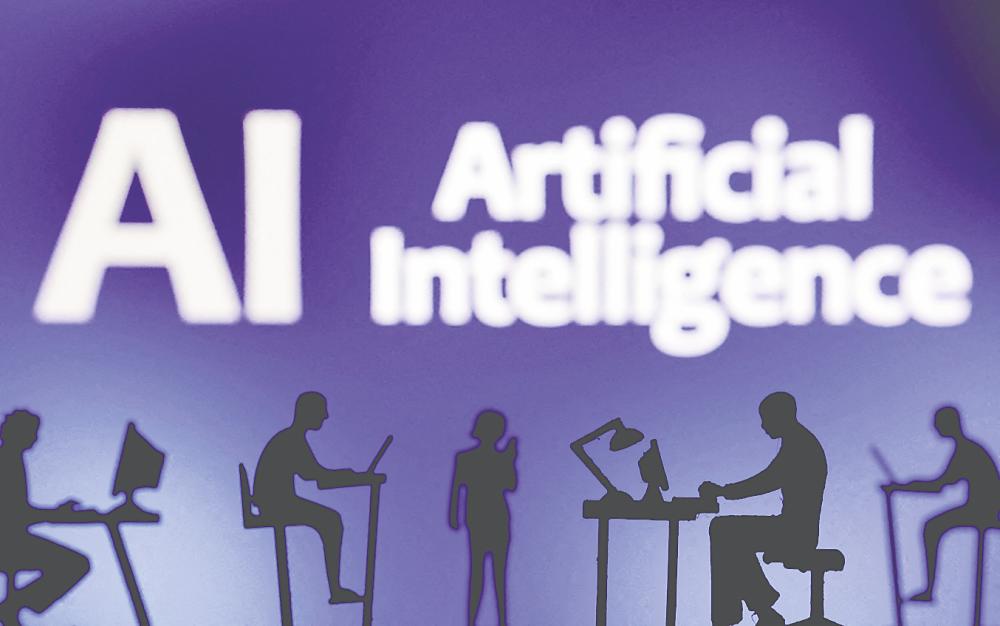WITH the artificial intelligence (AI) revolution advancing like a runaway train, it is imperative that we do some targeted evaluation to determine the upskilling and reskilling needs of our currently employed workforce while also addressing the educational needs of tomorrow’s leaders.
In the face of the exponential challenges of the competitive global marketplace, it is critical that we equip our most gifted young minds at home to meet these challenges from day one.
For Malaysia to be in an advantageous position economically, our workforce must be skilled in managing the use of AI in ways that facilitate and streamline operations while increasing productivity.
Today, as our young generation grows up immersed in technology, computational thinking and coding should be essential components of the education curriculum, along with critical thinking skills.
Beginning from the primary school level, many countries with highly-ranked education systems include coding as a compulsory subject.
Our Education Ministry must study the innovative curricula of countries like Singapore, Japan, the UK and Estonia, to develop the best approach for introducing these necessary technology skills to our youngest learners.
Teaching coding early on will encourage students to be creative in the use of computers, both in their education and later in their careers. They will be prepared to meet challenges in the workplace and grow with advancing technology, making them highly sought-after employees.
In this 5G era, governments, researchers, policymakers and stakeholders are calling for compulsory education and standardised testing for computer literacy in schools and workplaces for entry-level employment.
Prominent IT leaders are also promoting coding as a basis for overall development, just as reading, writing and mathematics are foundational for learning in general.
Attaining the maximum benefit of educational preparation includes hiring visionary educators and professors with the newest advanced skills in training the latest AI technologies and their delivery systems, through enhanced TVET (technical and vocational education and training) and STEM (science, technology, engineering and mathematics) curricula.
Further essential technologies include cybersecurity, cloud computing, robotics, ESG (environmental, social and governance) environment and socioeconomic governance, and communication technology.
Additionally, thorough training in English language communication is crucial as it is the international language of business, commerce and technology.
One effective way to improve English language proficiency can be to pass a legislative measure designating English as Malaysia’s second national language. Above all, we must learn, adapt and remain flexible.
Workers who are already using AI software often say they think of it as a complementary tool. This is where the skilful knowledge of how to use the software comes into play.
Video editor Dominique Palencia was quoted in an article stating that many of the Adobe software tools he uses now include AI features that have been incredibly helpful.
“The tool has been around for a while but Adobe’s AI has made it much more accurate and efficient.”
A supply chain executive mentioned that AI has helped automate steps in procurement and invoicing of materials.
However, on-site personnel are still needed to validate orders and oversee the processes, ensuring that there is no mismanagement or foul play.
These examples point to the continued need for human management and oversight in AI functions.
In line with these procedures, workers must also develop essential soft skills to foster initiative and innovation. Collaborating effectively with colleagues to brainstorm new methods or programmes that drive collective success is a valuable asset to companies.
The most productive companies also invest in top-notch training in soft skills. Without the human dimension, service deliveries will be compromised.
Meanwhile, among the latest AI technologies are those offering distillation capabilities, such as DeepSeek and Alibaba.
The Chinese company DeepSeek has created a super-capable R1 model that combines high performance with low resource cost.
The process of distillation refers to a transfer of knowledge from a large pre-trained model (the “teacher”) to a smaller model (the “student”), thus enabling the student model to achieve comparable performance to the teacher model.
In many cases, distillation offers a practical solution to the challenges of deploying costly, complex large models. It not only reduces model size and operational cost but also enhances the performance of student models for specific tasks, according to John Werner in a Forbes article.
These emerging complexities in the AI world demand enhanced training efforts at various levels to equip workers with the advanced skills and knowledge needed to tackle these challenges successfully.
They must be adaptable to change while being socially intelligent, learning to evaluate, create and communicate information clearly and effectively.
They must also learn to redesign their roles to deliver with accuracy, boosting productivity and, in turn, enhancing human capabilities.
Comments: letters@thesundaily.com









